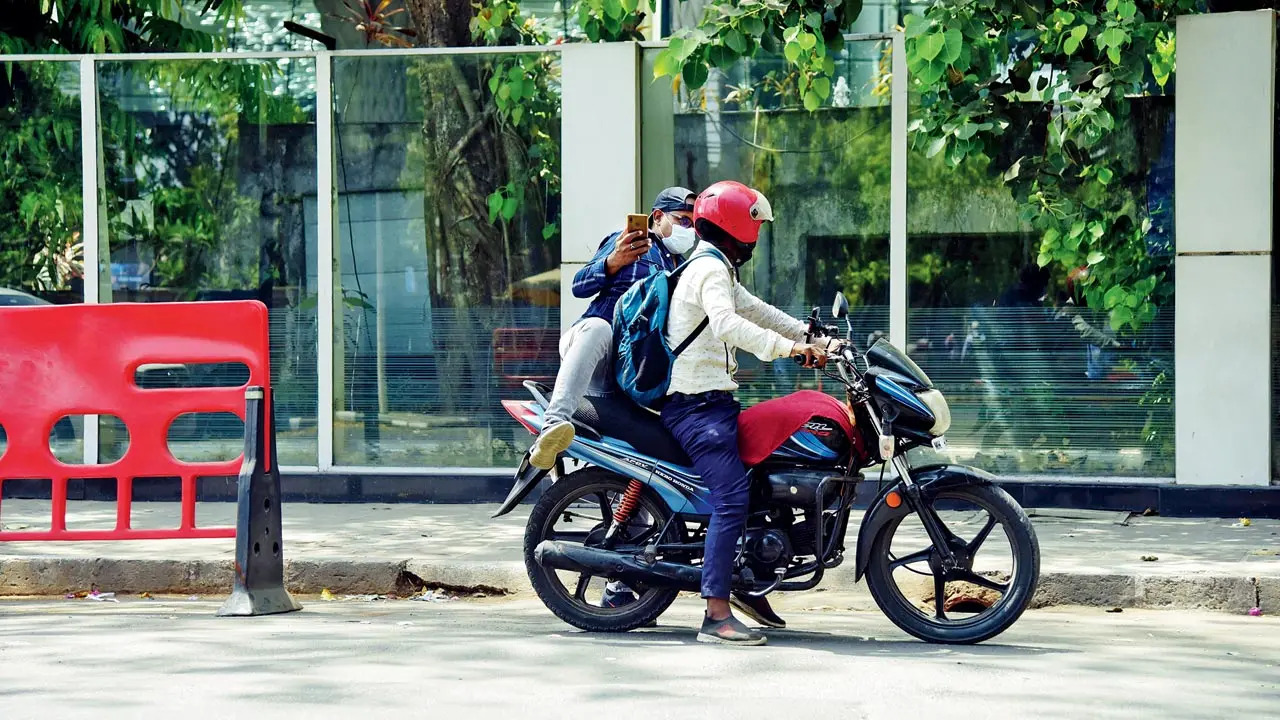The Ministry of Road Transport and Highways (MoRTH) has updated its Motor Vehicles Aggregator Guidelines. This landmark policy shift, announced on Tuesday, empowers private bike owners to formally enlist their motorcycles for commercial passenger and delivery services, opening new avenues for income generation while simultaneously addressing critical urban challenges such as traffic congestion and vehicular pollution.
The revised guidelines represent a crucial step towards legalising and streamlining a sector that has expanded rapidly across India, often operating in a regulatory grey area. By permitting state governments to authorise private bike owners as shared mobility providers, the Union government is fostering a “light-touch” regulatory system. This approach aims to balance market innovation with paramount concerns for user safety, security, and driver welfare, creating a more structured and accountable ecosystem for app-based bike taxi and hyperlocal delivery services.
“The state government may allow aggregation of non-transport motorcycles for journeys by passengers as shared mobility through aggregators, resulting in reduced traffic congestion and vehicular pollution, along with providing, inter alia, affordable passenger mobility, hyperlocal delivery, and creating livelihood opportunities,” the comprehensive guidelines state. This endorsement acknowledges the multifaceted benefits of integrating private bikes into the commercial mobility framework, particularly their potential to enhance last-mile connectivity and provide flexible employment opportunities in a rapidly evolving urban landscape.
The Ministry has communicated these significant revisions to Chief Secretaries of all states and Union Territories, urging them to implement the updated guidelines within a three-month timeframe. This clear directive underscores the central government’s intent to harmonise regulations with the dynamic nature of India’s shared mobility sector. To facilitate a seamless transition, a dedicated central portal for streamlined aggregator license applications, including fee payments and security deposits, is currently under development. Until this digital platform becomes fully operational, states will continue to process license applications under their existing rules, ensuring continuity in operations.
The guidelines are meticulous in outlining compliance measures for both driver onboarding and vehicle engagement, emphasizing transparency and accountability. Aggregators are now mandated to develop and maintain a publicly accessible website, clearly disclosing vital information such as their ownership details, registered address, fare structures, customer service contact information, and the full range of services offered. This commitment to transparency is a significant step towards empowering consumers and fostering trust within the shared mobility ecosystem, allowing users to make informed choices.
From an urban planning perspective, the formalisation of private bike aggregation holds immense potential for creating more sustainable and equitable cities. By enabling more efficient utilisation of existing vehicle assets, the policy can contribute to reducing the overall number of vehicles on roads, thereby alleviating traffic congestion and decreasing vehicular emissions. This aligns directly with the vision of fostering zero net carbon and eco-friendly urban environments. Furthermore, bike taxis offer an affordable and nimble mode of transport, particularly in congested city lanes, making mobility more accessible to a wider demographic, including those from lower-income brackets, thus promoting greater social equity and accessibility in urban centres.
The gig economy, powered by such flexible work arrangements, has emerged as a crucial source of livelihood for millions across India, particularly for youth and those seeking flexible income streams. This new policy opens doors for private bike owners to supplement their incomes or even establish primary earnings by leveraging their existing assets. This not only enhances individual economic empowerment but also diversifies the urban workforce, contributing to a more gender-neutral economy where opportunities are less constrained by traditional employment structures. The explicit mention of “creating livelihood opportunities” in the guidelines highlights the government’s recognition of the gig economy’s role in job creation.
However, the success of this policy hinges on robust implementation and continuous oversight by state governments. Ensuring stringent safety protocols, comprehensive insurance coverage for both riders and passengers, and fair compensation mechanisms for bike owners and operators will be paramount. As the sector evolves, ongoing dialogue between policymakers, aggregators, and the rider community will be essential to address emergent challenges and fine-tune regulations, guaranteeing a balance between economic dynamism and social welfare. This regulatory clarity is a welcome development for companies operating in this space, providing a framework for expansion and further innovation.
In conclusion, the updated Motor Vehicles Aggregator Guidelines mark a pivotal moment for urban mobility and the gig economy in India. By integrating private bikes into regulated commercial services, the policy offers a pragmatic solution to enhance connectivity, reduce environmental impact, and generate widespread livelihood opportunities. This forward-thinking approach has the potential to transform how millions commute and earn, driving India towards a future of smarter, more sustainable, and inclusive urban spaces.
Also Read :Pune MSRTC Division to Cut Loss Routes and Add 150 Buses


